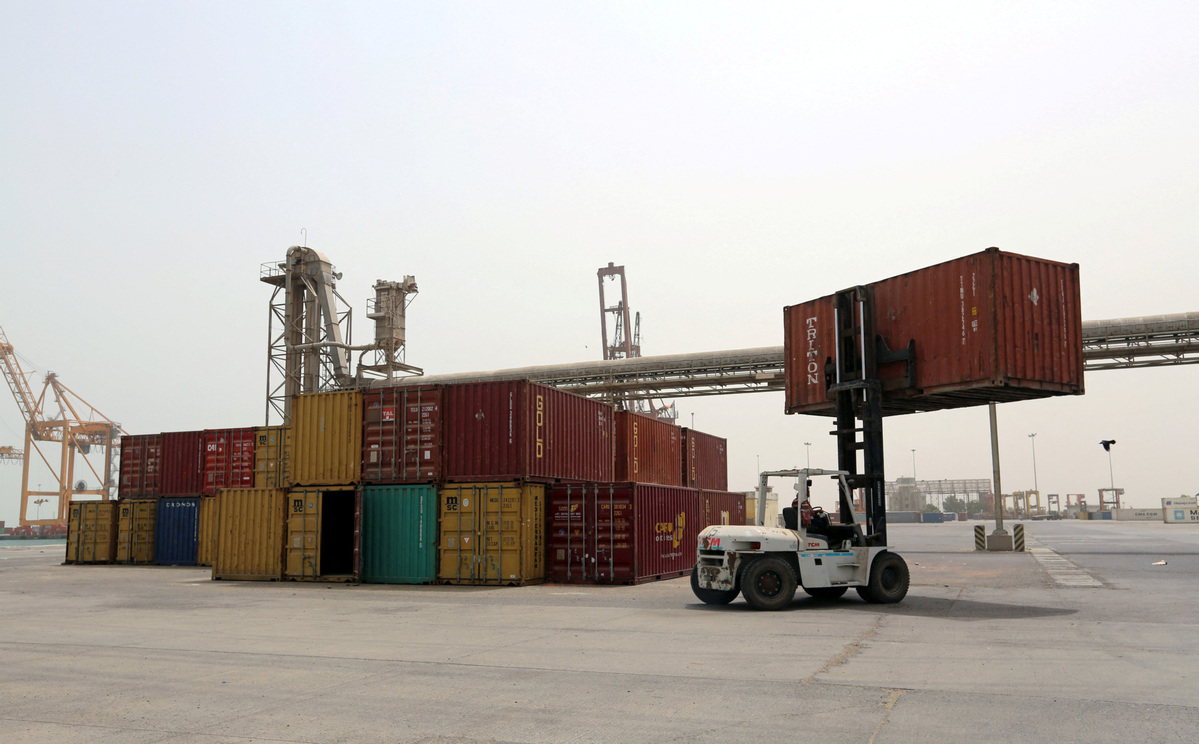Attacks by Houthis 'sign of protest'
Tensions in Red Sea highlight urgency of achieving truce in Gaza, analysts say
By JAN YUMUL in Hong Kong | China Daily | Updated: 2023-12-25 09:59

Tensions in Red Sea highlight urgency of achieving truce in Gaza, analysts say
Tensions on the Red Sea concerning Yemen's Houthi militias and their threats against Israeli-linked or — bound shipments only make it imperative for the international community to agree on a sustainable cease-fire in Gaza, analysts said.
They also said the Houthis' actions were a "message of protest "against the violence in Gaza, and against the United States' position in the long-standing Yemeni conflict where Washington has repeatedly been accused of obstructing peace in the conflict-ridden country.
Civil war in Yemen broke out in 2014 after the Houthis seized the capital Sanaa, forcing out the internationally recognized government of president Abd-Rabbu Mansour Hadi.
The Houthis have escalated attacks on commercial ships in the Red Sea recently, demanding an end to Israel's aggression in the Gaza Strip where more than a staggering 20,000 Palestinians have been killed since Hamas' attack on Israel on Oct 7.
According to the International Chamber of Shipping, the Red Sea is a crucial waterway, linking Europe and Asia where currently 12 percent of global trade passes.
In response to the Red Sea assaults, US Secretary of Defense Lloyd Austin called the Houthi attacks "reckless", as he announced the establishment of "Operation Prosperity Guardian" on Dec 18.
A total of more than 20 countries have agreed to participate in the new US-led coalition, but at least eight of the countries that have signed up have also declined to be publicly named, Reuters reported on Thursday.
Potential risks
Hussein Al Suhaily, founder of Tamdeen Youth Foundation in Sanaa, said there "was no doubt "the attacks targeting Israeli ships on the Red Sea "have contributed to increasing the potential risks "that would leave global trade and economic impacts not necessarily limited to Israel.
Nevertheless, he said, what the Houthis are doing could be considered a "temporary message of protest about the war in Gaza".
"It is also a protest against the position of the US on the war in Yemen, where the Houthi group has repeatedly accused the US of obstructing peace," said Al Suhaily.
Al Suhaily also said the US presence was "nothing new" as they had been present in the seas and waterways around Yemen.
Al-Mayadeen Media Network, an independent Arab satellite news channel based in Beirut, Lebanon, reported that Patrick Fox, a military analyst, argued that the US coalition was "militarily unnecessary", given the US assets already stationed there.
The report said it prompted the speculation of the US aiming to turn the Red Sea into a war zone "to protect Israeli interests" rather than simply "keep strategic waterways safe" as Lloyd Austin had claimed.
Israel had earlier urged the international community to rein in the Yemeni militia. "If the world does not take care of it," the country's National Security Adviser Tzachi Hanegbi warned on Dec 9, "we will take action."
Furkan Halit Yolcu, a researcher at Sakarya University's Middle East Institute in Turkiye, said the Houthis have been threatening global shipments on the Gulf of Aden for many years "but they never truly focused their manpower on blocking the trade as it would hit Iran first".
Teheran has been accused by the US of being involved in attacks by Houthis on commercial ships on the Red Sea. Iran's deputy foreign minister Ali Bagheri Kani denied this, saying the Houthis have their own tools and act in accordance with their own decisions and capabilities.
Yolcu noted that there were countries not willing to participate in the US-led maritime coalition as "most of the countries had tumultuous relations with the US recently" and that they "would not welcome the idea of their soldiers used at the expense of US Navy generals".
Dina Yulianti Sulaeman, director of the Indonesia Center for Middle East Studies, said the Yemenis suffered greatly from their civil war, but they survived. "The blockade of the Red Sea will only end if Israel stops its attacks on Gaza," she added.
Al Suhaily, from Yemen, said the escalating tensions in the region "makes it imperative for the international community to agree on a sustainable cease-fire in Gaza".























